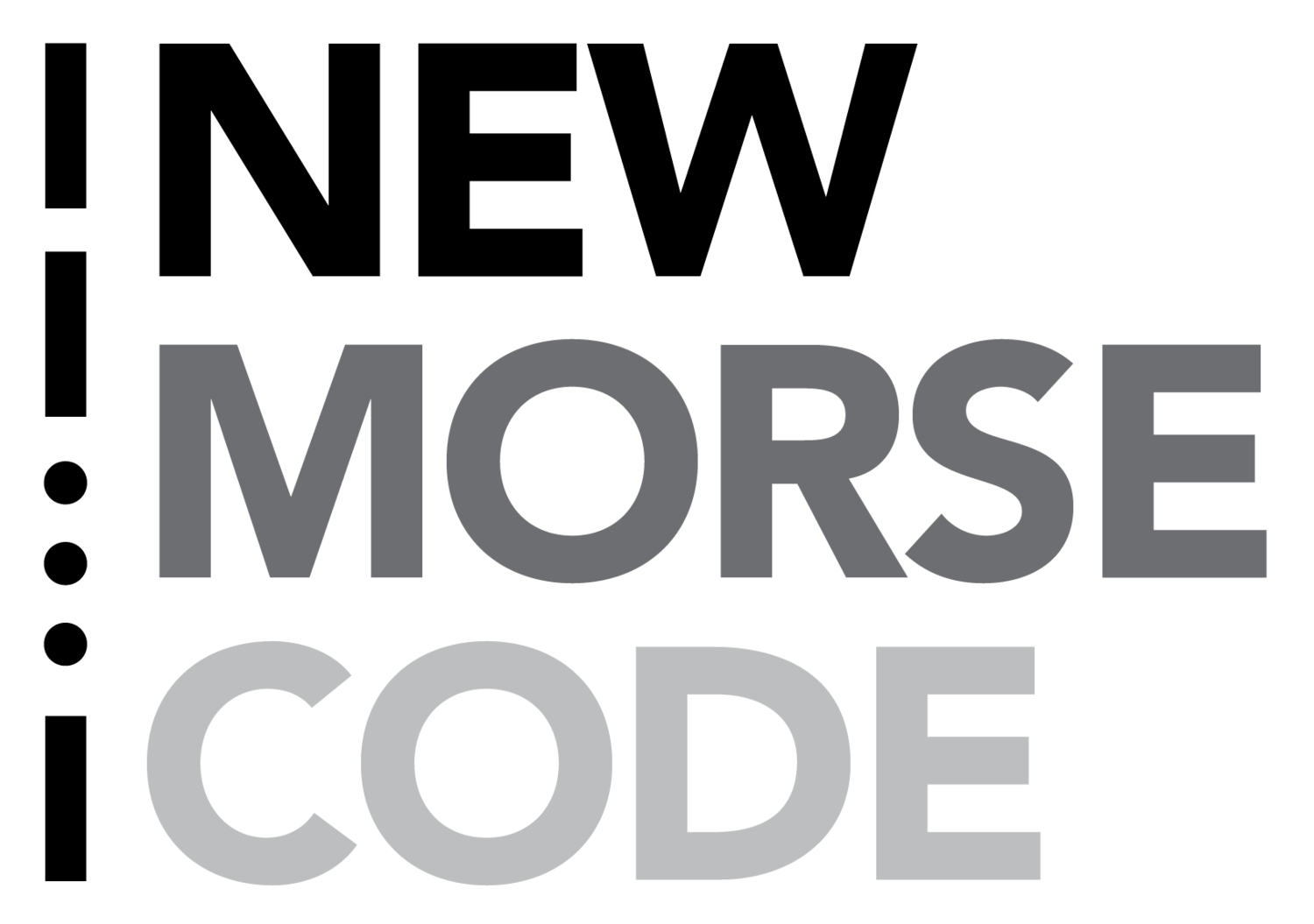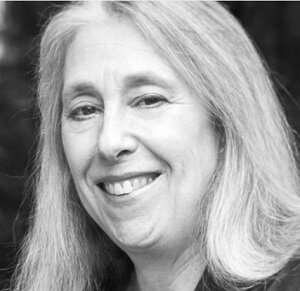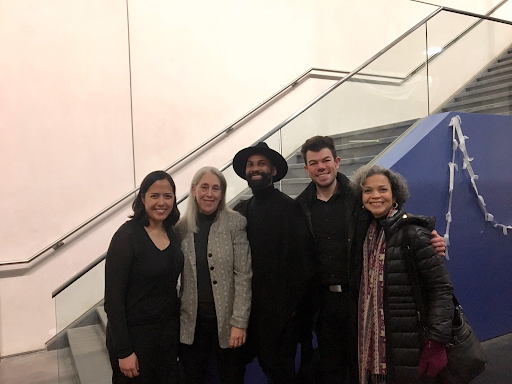Supported by New Morse Connections Kickstarter
Technical Information
ca. 40’
soprano, cello, percussion
Premiered November 17, 2018
Purchase or Stream
Performance History
March 15, 2021
Album released on Albany Records
October 23-November 1, 2020
Online Film Premiere presented by Baruch Performing Arts Center and Opera Omaha
Audio by The Post Haus
Film by four/ten media
March 19-21, 2020
Rose Nagelberg Theatre, Baruch Performing Arts Center, New York, NY
New York Premiere - canceled due to COVID-19
January 27, 2019
St. James United Methodist Church, Kansas City, MO
Performance followed by panel discussion
January 25, 2019
1900 Building, Mission Woods, KS
Cecilia Series
November 17, 2018
Lawrence Arts Center, Lawrence, KS
Staged Premiere
March 5, 2018
Swarthout Recital Hall, University of Kansas, Lawrence, KS
Workshop Performance
Additional Documentation
About the Work
Best of KC 2019: Theater: “…a chamber opera about racism, erasure, and the heady cocktail of fear and love black parents feel when they send their kids out into a world that too often sees them not as a child, but a threat. …intentional and powerful…. In pinpointing and relating the terror racial biases and injustices cause, Kander and Gumbel created one of the most singularly devastating theatrical moments of the last year.”
– THE PITCH, Kansas City’s alternative newspaper for Arts and Culture
Librettist’s note
“Singers are storytellers,” says Roberta Gumbel, “but rarely do we get the opportunity to help create the stories we are telling.” dwb is constructed out of two interwoven strands, one personal, one external. In the central narrative, we meet the Mother: a baby is born to happy parents; she frets at the father to put the all-important car seat in the back seat of the car properly. From here on, she relates to the child first in its seat facing backward in the back of the car, then facing forward, then eventually the child sits next to her in the front seat on the passenger side. This is how Time is marked; the car is ever the center of their lives. The Mother scenes move forward in time from the beginning to the end of the piece. Threaded between these scenes, punctuating them, are telegraphic vignettes of contemporary news bulletins or personal stories introduced in spoken words by the musicians. They have a different instrumental color and texture from the Mother scenes, as if a channel has been switched. The Singer sheds her role as Mother and, taking on different characters, (young, old, male, female) relates specific but generic events. These all describe, without comment, the dangerous world beyond the Mother’s control, and the increasing anxiety building up in her mind as her “beautiful brown boy” approaches age sixteen and his much-desired independence. How does she summon the courage to hand him the keys to her car and let him go?
Composer’s note
Roberta Gumbel and I waded into new waters in so many ways with this piece. Her first libretto; my first collaboration with a librettist other than myself; my first work with the ground-breaking duo New Morse Code, who are swiftly letting the world know that the orchestrational possibilities embodied in one cellist and one percussionist are, at least in their hands, vast. I chose to build the percussion centered on the vibraphone because it offers so many different timbres and durations and easily provides a harmonic bed. Beyond that are twenty more instruments the percussionist will hit, swipe, rub, blow and kick. The cellist’s part goes beyond the cello (toy piano, tambourine), including a brief stint in the percussion area. One scene is almost entirely done without any instruments beyond the human body, a twenty-first century reference to juba or ham-boning. Both instrumentalists are also drawn into the telling, because even though this is technically a one-woman show, no one in this story is ever alone. We’re all in it together.
– Susan Kander
About The Librettist
Roberta Gumbel has performed in opera, concert and musical theater. After completing her bachelor and master's of music at Indiana University in Bloomington, she made her professional debut with the Lyric Opera of Kansas City. In addition, she has performed with Michigan Opera Theater, Indianapolis Opera, Opera Memphis, and Philadelphia Opera. A frequent Clara in Porgy and Bess, Gumbel has sung the role internationally and throughout the United States.
Gumbel spent 18 years in New York City. She performed in several Broadway shows, including Showboat, Ragtime, Baz Luhrmann's La Boheme and In My Life.
Gumbel has been a frequent soloist with Wynton Marsalis and Jazz at Lincoln Center, performing in several Christmas shows as well as the Duke Ellington Sacred Concert. Gumbel is the featured soloist in the Song Cycle on Susan Kander's recording of "Songs for My Father". She is also the soprano soloist on George Quincy's recording of Pocahontas in the Court of King James, which was performed at the Smithsonian. Gumbel can be heard on Jazz at Lincoln Center's Christmas Album.
As a teacher, Roberta has taught privately at the New World School of the Arts High School and Barry University in Miami, Florida. She maintained a private studio in New York City. Upon returning to her hometown of Kansas City, Missouri, Gumbel teaches privately and is on the roster of Kansas City Young Audiences.
About the Composer
The music of Susan Kander has been heard throughout the United States and in cities around the world, including London, Paris, Mexico City, Lima, Birmingham, Vancouver, Cape Town, St. Petersburg and Guangzhou.
She has received commissions from Opera Minnesota, Opera Theater of St. Louis, Lyric Opera of Kansas City, and Columbus Opera. Dwb (driving while black), written with Roberta Gumbel, librettist, was developed at University of Kansas School of Music and premiered in 2020 during the Covid pandemic in a streamed video co-presented by Baruch Performing Arts Center, New York and Opera Omaha. In 2012, Minnesota Opera and Lyric Opera of Kansas City co-commissioned an adaptation of the seminal dystopian novel The Giver by Lois Lowry; the 85-minute chamber opera received its third production at Tulsa Opera. Knight Arts, St. Paul, called it a “remarkable new work…. sophisticated and subtle.” The News from Poems, about the wife of American poet William Carlos Williams, was given a staged reading in 2017 at the American Opera Center with Katherine Pracht, Keith Phares, and John Taylor Ward. Never Lost a Passenger, about Harriet Tubman and black abolitionist William Still, was commissioned by Lyric Opera of Kansas City in 1996 and subsequently produced by nine opera companies, many of them in multiple years. One False Move, about girl bullying, commissioned as well by Lyric Opera of Kansas City in 2002, has been produced by at least fourteen different companies and schools, including in South Africa and China.
Kander’s special passion for text setting and vocal writing has resulted in several long-form song cycles with varying chamber ensembles. Her most recent, Eavesdropping for soprano, violin and percussion, was a 2018 commission to set the poetry of Michelle Boisseau. 2021 will see the premier of Rahassya, a seventeen-minute work for mezzo and percussion, with text from Khalil Gibran’s The Prophet, as well as publication of a new collection of sixteen individual songs and arias: piano/vocal settings of texts from 1669 to today, titled First Person, Second Person, Third Person Singular.
Highlights of her instrumental catalogue include Miranda’s Waltz for narrator and orchestra, commissioned/premiered in 2009 by the National Symphony Orchestra, which was programmed and live-streamed around the world in May 2017 by the Australian Discovery Orchestra. Another NSO commission, The Donkey, the Goat and the Little Dog, an original fable for string quartet, was greeted by The Washington Post as “the first all-talking, all-acting, in-motion string quartet…often hilarious…hugely enjoyable.” Regarding her 2009 solo bassoon commission The Lunch Counter, a character study in seven movements, Fanfare Magazine wrote: “Kander’s Lunch Counter alone is so fascinating that it is worth the price of the recording.” Her 2013 work, Hermestänze for violin and piano, commissioned by Jacob Ashworth, violinist (also her son), is a rare example of a large-scale dramatic cycle written for the violin. And the Lamp Tilted Near Them (2019), commissioned by Victoria Schonfeld (1950-2019) for the unusual ensemble oboe plus piano trio, features a requested fantasia on the classic Kol Nidre melody in its middle movement. She is especially proud to have had her Solo Sonata for violin-viola-violin performed by commissioner Yuval Waldman during the White Nights festival in the Composers’ Forum in St. Petersburg, Russia.
Kander received her B.A. in Music at Harvard in 1979 but was a playwright until “coming home to music” in the mid-1990’s. (Finding herself in a small village in France during a six-month stay, she wrote an opera for her sons’ elementary school on their two-and-a-half octave yellow Playskool piano. There was no turning back.) In 2015, after composing busily for over twenty-years, she decided to blow things up by finally attending graduate school in composition. She studied with Du Yun and Huang Ruo at Purchase Conservatory, re-arranging the furniture in her mind and earning her M.M. in Composition in 2017. Her favorite part of graduate school was experiencing music through the ears and minds of the younger students in the department. She has been an invited blogger for New Music Box. Her music has been recorded on the Albany, MSR, Navona and Loose Cans labels. Her publisher is Subito Music Corp. She is a Fellow of the MacDowell Colony and lives in New York.
Performance History
March 15, 2021
Album released on Albany Records
October 23-November 1, 2020
Online Film Premiere presented by Baruch Performing Arts Center and Opera Omaha
Audio by The Post Haus
Film by four/ten media
March 19-21, 2020
Rose Nagelberg Theatre, Baruch Performing Arts Center, New York, NY
New York Premiere - canceled due to COVID-19
January 27, 2019
St. James United Methodist Church, Kansas City, MO
Performance followed by panel discussion
January 25, 2019
1900 Building, Mission Woods, KS
Cecilia Series
November 17, 2018
Lawrence Arts Center, Lawrence, KS
Staged Premiere
March 5, 2018
Swarthout Recital Hall, University of Kansas, Lawrence, KS
Workshop Performance







